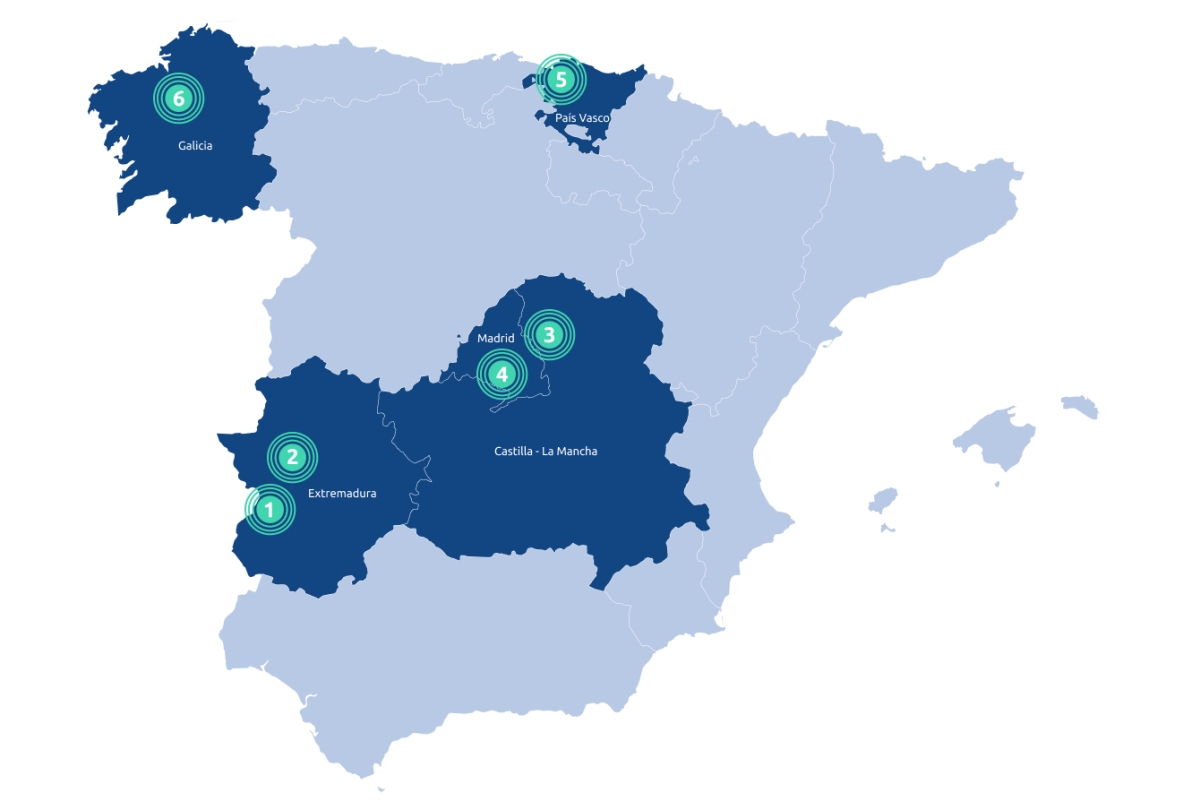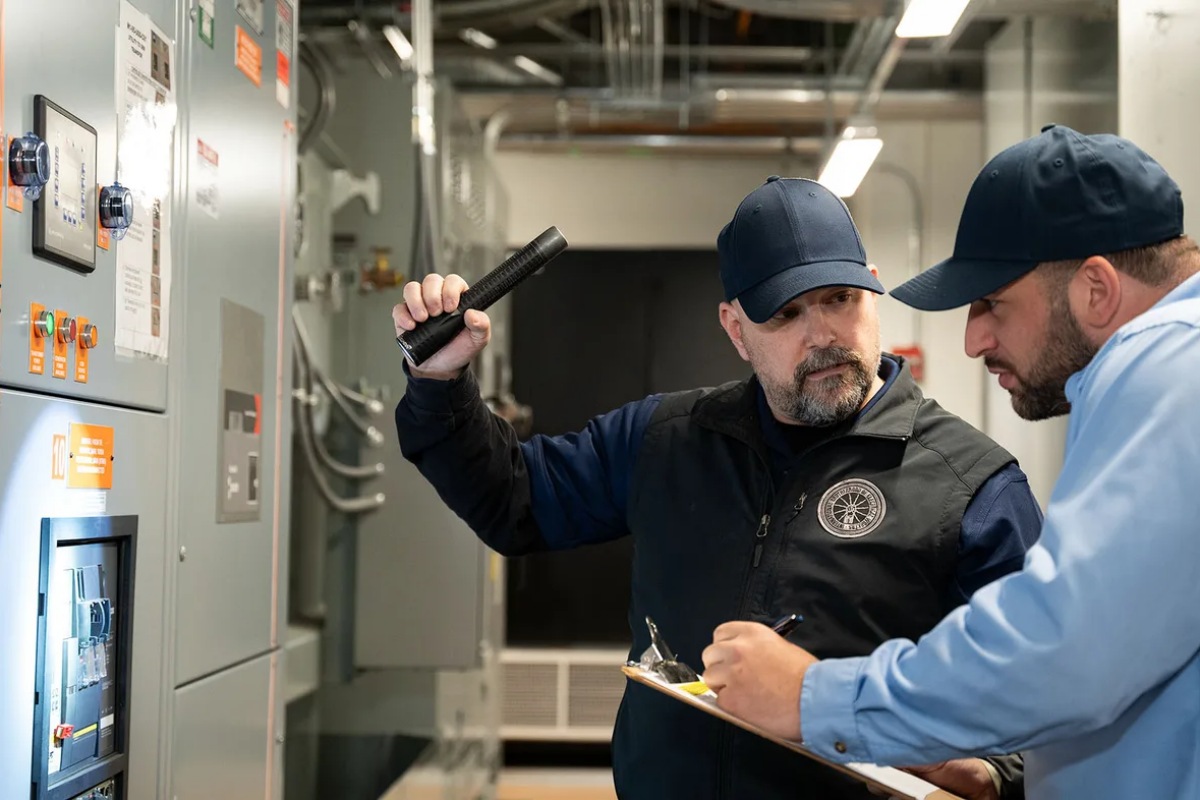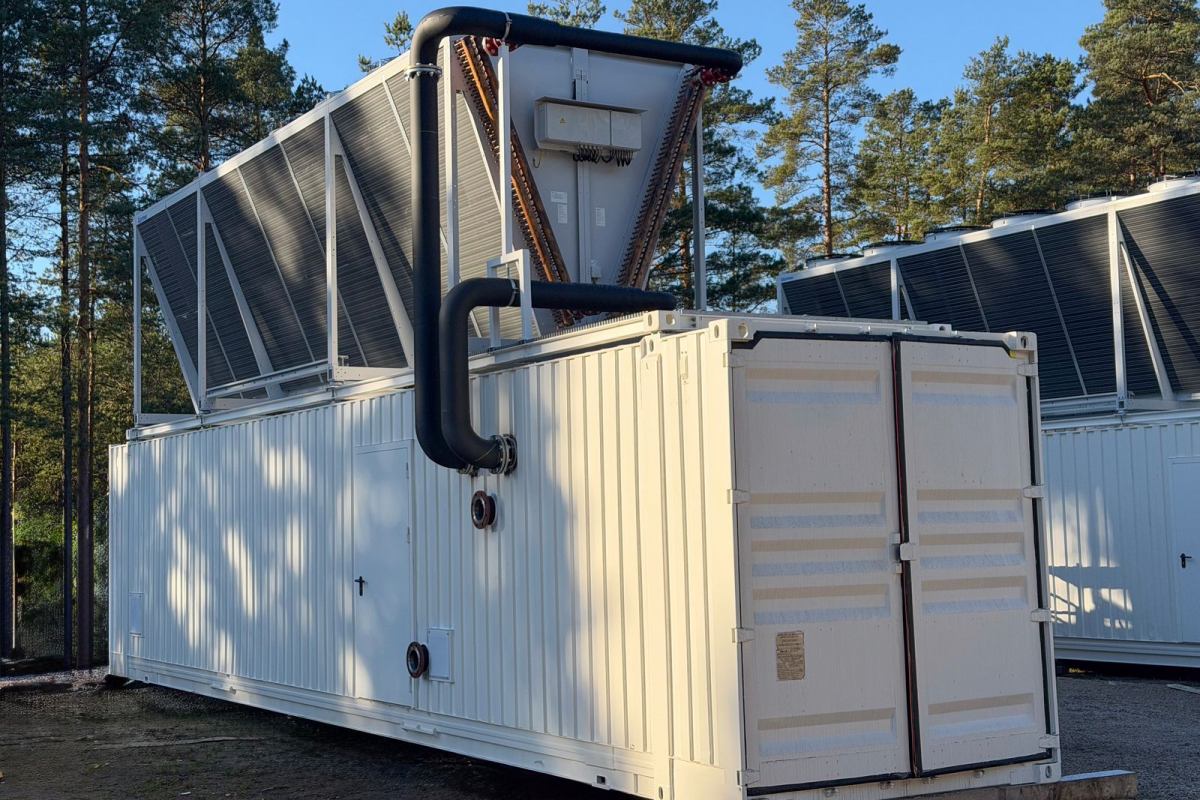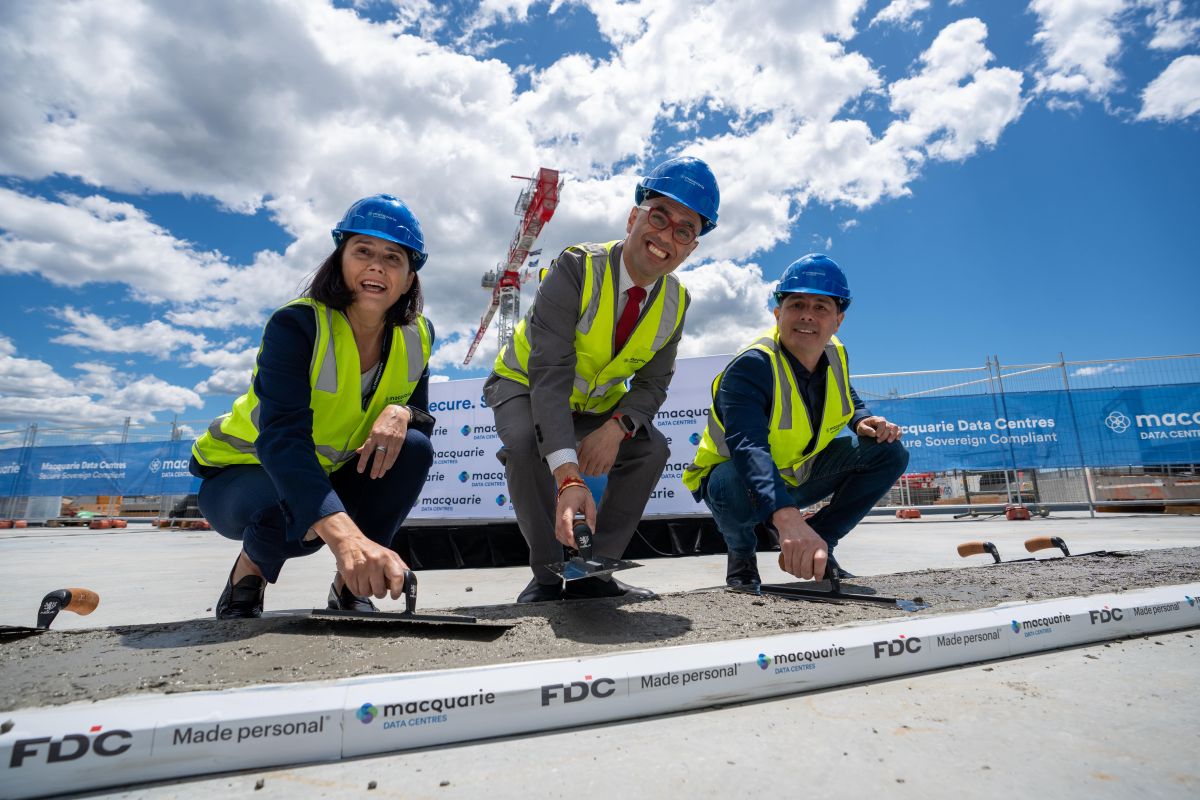Data Centre Projects: Infrastructure Builds, Innovations & Updates
Data Centre Build News & Insights
Data Centre Business News and Industry Trends
Data Centre Projects: Infrastructure Builds, Innovations & Updates
Insights into Data Centre Investment & Market Growth
AirTrunk expands Japan's hyperscale data centre capacity
Australian hyperscale data centre operator AirTrunk has announced plans to develop a second hyperscale data centre in Osaka, expanding its platform in Japan and increasing total national capacity to around 530 MW.
The new facility, OSK2, will be located in East Osaka and is planned to deliver up to 100 MW of IT capacity. It will complement AirTrunk’s existing OSK1 site in West Osaka, which provides 20 MW, adding regional diversity across the Kansai area.
The development forms part of a wider investment programme of approximately $8 billion (£5.9 billion; ¥1.2 trillion) across AirTrunk’s existing and planned projects.
With OSK2, AirTrunk’s Japanese portfolio becomes part of a broader hyperscale platform spanning Asia Pacific and the Middle East. The company states that the new site is intended to support increasing demand linked to cloud adoption and AI workloads.
Investment in Osaka and national growth
OSK2 will be AirTrunk’s 14th data centre across six markets, contributing to a wider platform with more than two gigawatts of capacity from operational sites with secured power.
Since entering Japan, AirTrunk has invested around $1.57 billion (£1.1 billion; ¥244 billion) to support construction activity, operational roles, and local supply chains.
Robin Khuda, founder and CEO of AirTrunk, says, “Japan plays a pivotal role in AirTrunk’s platform growth across Asia-Pacific. As Japan’s cloud and AI adoption accelerates, our continued investment in Osaka and Tokyo reflects our long-term commitment to building the scalable infrastructure that underpins this transformation.
"Japan is not only a key market for us, but a partner in shaping the future of hyperscale and AI innovation. AirTrunk’s Japan investment is one of the largest investments by an Australian company and brings Australia closer to Japan.”
The company recently opened a new Japan headquarters in Roppongi Hills Mori Tower, expanding office space to accommodate team growth. AirTrunk currently employs more than 100 staff in Japan and says it plans to increase headcount to support ongoing development.
Nori Matsushita, AirTrunk Country Head, Japan, adds, “OSK2 represents a significant milestone in our commitment to Japan. By expanding in Osaka, we’re not only meeting the growing demand for hyperscale and AI infrastructure, but also creating new opportunities for local talent, suppliers, and communities.
"This investment strengthens Japan’s position as a digital leader in Asia-Pacific and ensures our customers have the resilient, scalable capacity they need to innovate.”
Japan’s national digital initiatives, including Society 5.0 and the Priority Plan for Digital Society, place cloud and AI infrastructure at the centre of economic and social development. AirTrunk says its expansion is aligned with these programmes by increasing available hyperscale capacity within the country.
Yamada Kenji, Member of the House of Representatives and State Minister of Economy, Trade, and Industry, notes, “Japan is committed to building a robust digital foundation that accelerates innovation and strengthens our global competitiveness.
"Continued investments like AirTrunk’s new Osaka hyperscale data centre are vital to supporting our national priorities, including Society 5.0 and the responsible adoption of AI.
"By partnering with leading technology companies, we are ensuring that Japan remains at the forefront of sustainable digital infrastructure and economic growth.”
For more from AirTrunk, click here.
Joe Peck - 19 December 2025
Data Centre Build News & Insights
Data Centre Projects: Infrastructure Builds, Innovations & Updates
Sustainable Infrastructure: Building Resilient, Low-Carbon Projects
Nostrum details availability of new data centres in Spain
Nostrum Data Centers, a developer of sustainable data centre infrastructure across Spain and Europe, has confirmed that its data centre assets in Spain are scheduled to become available in 2027, as the company develops new capacity to support AI, cloud, and high-performance computing workloads.
The company, part of Nostrum Group, is planning up to 500 MW of IT capacity across multiple sites in Spain. According to Nostrum, around 300 MW of power capacity has already been secured, with further phases intended to increase this figure over time.
Earlier this month, Nostrum announced that AECOM had been appointed to design and manage a large data centre campus in Badajoz. The project represents one of several developments underway, with the Badajoz site forming part of a wider national rollout.
Capacity rollout and site strategy
Nostrum is developing six data centre sites across Spain, selected to take advantage of subsea connectivity routes, available power infrastructure, and energy costs. The company says this approach is intended to support phased deployment and future expansion as demand grows.
The facilities are designed to support higher density computing, with Nostrum stating a target PUE of 1.1 and zero water usage for cooling. The company adds that its developments are intended to reduce carbon emissions associated with data centre operations and align with broader sustainability objectives.
Gabriel Nebreda, Chief Executive Officer at Nostrum Group, comments, “Our Spain-based data centres combine strategic site selection, secured power connections, and AI-ready infrastructure to meet the demands of the next-generation digital economy.
"Our team of industry leaders with over 25 years of experience are developing facilities that are not only highly efficient and scalable but also fully sustainable, supporting both our customers’ growth and global climate goals.”
Nostrum says the 2027 availability date reflects its broader development programme, which is focused on delivering new data centre capacity with secured land and power across Spain.
For more from Nostrum Data Centers, click here.
Joe Peck - 18 December 2025
Data Centre Build News & Insights
Data Centre Operations: Optimising Infrastructure for Performance and Reliability
Data Centre Projects: Infrastructure Builds, Innovations & Updates
Modular Data Centres in the UK: Scalable, Smart Infrastructure
Vertiv, GreenScale to deploy DC platforms across Europe
Vertiv, a global provider of critical digital infrastructure, and GreenScale, a developer of hyperscale data centre campuses, have announced a strategic collaboration to deliver factory-integrated data centre platforms engineered for next-generation AI workloads in Europe.
Following a competitive pre-qualification questionnaire (PQQ) process, GreenScale selected Vertiv as its preferred provider for standardised, prefabricated Vertiv OneCore hybrid-built data centres.
While GreenScale will manage slab-down construction and site-wide infrastructure, Vertiv will provide AI-ready data centre modules engineered to support liquid-cooled deployments of NVIDIA Grace Blackwell GB200/300 graphic processing units (GPUs), including next-generation Vera Rubin GPUs.
Vedran Brzic, VP Infrastructure Solutions Business EMEA at Vertiv, says, “AI workloads demand density and speed. By integrating the Vertiv OneCore platform into GreenScale’s standard design, we can help to accelerate deployment of scalable infrastructure for AI, high-performance (HPC), and high-density computing.
"Our scalable prefabricated solution integrates our proven power, thermal, and IT infrastructure into a single factory-assembled system that can help customers deploy high-density capacity more efficiently while increasing reliability and performance.”
Vertiv's OneCore platform
The Vertiv OneCore platform supports up to 200+ kW per rack and features coolant distribution units (CDUs) with a dual-loop liquid cooling system.
The platform is supported by Vertiv SmartRun overhead prefabricated infrastructure, which includes an integrated secondary fluid network (SFN) for liquid-cooled thermal management - optimised for GPU-intensive architectures - and power distribution.
Modules arrive factory-built and pre-tested, with GreenScale providing comprehensive site services including grid integration, permitting, battery monitoring system (BMS)/security systems, and slab-down construction.
Dan Thomas, CEO at GreenScale, comments, “Our collaboration with Vertiv aligns perfectly with GreenScale’s mission to rapidly deploy high efficiency, AI-ready infrastructure across Europe. By standardising on Vertiv’s prefabricated platforms, we gain significant advantages in speed-to-market, quality control, and operational efficiency.
"Their proven experience in high-density cooling solutions and factory-integrated approach helps us minimise on-site complexity while enabling our facilities to be optimised for the most demanding AI workloads. This standardised platform approach will be instrumental in executing our ambitious expansion plans across Northern Ireland and the Nordics.”
GreenScale plans to expand with approximately 120 MW in Northern Ireland and over 300 MW across the Nordics, with a long-term vision to deploy close to 1 GW across Europe.
The company says it aims to implement a high-performance compute model that aligns its objectives and timelines with "technology providers who can efficiently deliver scalable, AI-ready solutions."
For more from Vertiv, click here.
Joe Peck - 17 December 2025
Data Centre Build News & Insights
Data Centre Business News and Industry Trends
Data Centre Projects: Infrastructure Builds, Innovations & Updates
Insights into Data Centre Investment & Market Growth
InfraRed invests in Spanish data centre platform
InfraRed Capital Partners, an international mid-market infrastructure asset manager, has made a majority investment in NxN Data Centers, a Spain-based data centre platform focused on meeting growing demand for computing and data storage services.
NxN was formed in 2023 as a joint venture between Nethits Telecom Group and asset manager Adequita Capital. The platform is aimed primarily at regional enterprise customers and is developing facilities to support increasing requirements linked to digitalisation and AI-driven workloads.
InfraRed will invest alongside minority shareholder Adequita to support the development of NxN’s first site, a 5 MW data centre in Valencia, as well as potential expansion across the Iberian Peninsula.
Construction at the Valencia site has already started, with the facility scheduled to open in 2027. Once operational, it will provide colocation infrastructure designed to support high-density and AI-ready computing.
Expansion plans in an underserved market
Spain is attracting increased interest from data centre investors due to strong enterprise demand, data sovereignty considerations, and access to renewable energy. Despite this, the market remains relatively under-supplied compared with other European regions.
Pilar Banegas, Partner at InfraRed, comments, “NxN represents an opportunity to establish a data centre platform within Spain’s expanding digital landscape.
"We are pleased to be working with Adequita, whose experience and relationships across Spain will support the company’s development. We will also draw on our experience developing nexspace, our DACH data centre business, as we support the NxN management team.”
NxN’s leadership team brings experience across telecommunications, data centre operations, and enterprise services. The company says this background positions it to deliver its planned growth strategy in Spain.
Javier Salas, founder and Executive Chairman of Nethits and NxN Data Centers, says, “We are delighted to partner with InfraRed to deliver high-quality, energy-efficient data centres in Spain.
"By leveraging InfraRed’s experience in growing data centre businesses, we are well positioned to execute our vision for NxN.”
Josep Adsera, Principal at Adequita, adds, “We welcome InfraRed as the majority investor in NxN. Their investment reinforces the platform and enables it to move into its next phase of development. We look forward to continuing our collaboration.”
Joe Peck - 17 December 2025
Data Centre Build News & Insights
Data Centre Business News and Industry Trends
Data Centre Projects: Infrastructure Builds, Innovations & Updates
Insights into Data Centre Investment & Market Growth
Pure DC signs Europe’s largest hyperscale DC lease for 2025
Pure Data Centres Group (Pure DC), a designer, developer, and operator of hyperscale cloud and AI data centres, today announced it has signed 2025’s largest standalone hyperscale data centre lease in Europe.
A hyperscale customer is leasing the entire 78MW campus, situated in Westpoort, Amsterdam, with Pure DC investing over €1 billion (£877 million) to develop the site.
As part of the lease deal, Pure DC has purchased a site and secured planning permissions and 100MVA of power via a private substation. The land was purchased on a long leasehold from the Port of Amsterdam.
Securing the site, combined with permitting approvals, power, and supply constraints within Amsterdam, reportedly required complex negotiations and creative partnership over many months to secure the deal.
Regional growth and energy resilience
The company believes this infrastructure investment is set to play a pivotal role in supporting the region’s digital growth and energy resilience.
As well as the Euro investment by Pure DC, the development will provide over 1,000 jobs and support more roles through the extended supply chain. This hopes to drive demand for skilled positions, utilising local companies wherever possible.
Once complete, the data centre will provide approximately 80 permanent skilled jobs including engineers, maintenance, security, and administrative staff.
Designated AMS01, Pure DC’s data centre campus will comprise of three 85-metre towers, powered by a private substation with a firm connection into the 50kV grid.
Each of the three towers will house 26MW of data halls, designed to support high density compute with high efficiency cooling and to achieve the Netherlands energy efficiency target PUE of 1.2.
The private substation is already constructed and live, with development of the data halls expected to begin in January 2026.
Dame Dawn Childs, CEO of Pure Data Centres, says, “Amsterdam is one of Europe’s most constrained markets for digital infrastructure and Pure DC has again demonstrated its ability to unlock new, low-latency, high-quality capacity.
"This deal demonstrates how our specialist teams have the creativity and approach to deliver compelling proposals for even previously distressed assets - delivering solutions for local authorities, potential customers, and our supply chain.”
Pure DC says it is committed to working with local communities near current and future operational locations, noting that, in Amsterdam, it aims to replicate programs running in its other projects - including working with local schools and universities to provide training, career guidance, and outreach programs; supporting local charitable organisations; and working with community partners on environmental conservation projects.
For more from Pure DC, click here.
Joe Peck - 15 December 2025
Data Centre Build News & Insights
Data Centre Projects: Infrastructure Builds, Innovations & Updates
News
Funding for community projects from Kao SEED Fund
Harlow-based community groups are celebrating new funding awards from the Kao SEED Fund Harlow, sharing a total of £30,000 to power community initiatives that aim to create positive social and environmental change.
Run by advanced data centre operator Kao Data, the second Kao SEED Fund (Social Enterprise and Environment Development Fund) was launched in September as part of the company’s ongoing commitment to supporting the town where it operates its AI data centre campus.
Developed in partnership with Harlow Council, the fund offered grants of between £500 and £2,500 to local community groups and not-for-profit organisations to help launch new programmes or create new pilot initiatives.
The wide-ranging projects includes funding to support a fully sustainable theatre production of Alice in Wonderland, a women-only boxing programme, free tuition for disadvantaged pupils, and a forest garden for a Scout group.
Funding local communities
Councillor Dan Swords, Leader of Harlow Council, comments, “In Harlow, we are building a community where innovation, opportunity, and local pride go hand in hand.
"The Kao SEED Fund is a fantastic example of how business and local government can work together to invest in the people and projects that make a real difference.
"The Harlow SEED Fund will help community groups across our town to roll out new projects or fund existing work in order to reach more residents and continue to make Harlow a great place to live.”
Lizzy McDowell, Director of Marketing at Kao Data, adds, “We have been so impressed with the creativity and dedication behind the community projects across Harlow.
"It was incredibly difficult to narrow down the applications, but we’re thrilled to support a further 20 inspiring groups, through our Kao SEED Fund initiative, that make such a tangible difference, from environmental programmes [and] arts initiatives through to youth and wellbeing projects.”
The Kao SEED Fund was launched for the first time in Harlow in September in order to recognise and invest in community-led projects that make the town a better place to live and work.
The 20 funded Harlow projects are: Butterfly Effect Wellbeing, Changing Lives Football, Epping and Harlow Community Transport, Harlow Arts Trust, Harlow Band Stand, Harlow Hospital Radio, Matipo Arts, Norman Booth Recreation Centre, Open Road Vision, PATACC, Plant pots and Wellies, Potter Street Health & Wellbeing Hub, Razed Roof, Rise Community, Roots to Wellbeing, The Frequency Machine, The Parent Hood of Harlow, The Scouts, The Victoria Hall Performing Arts Association, and Yellow Brick Road.
For more from Kao Data, click here.
Joe Peck - 15 December 2025
Artificial Intelligence in Data Centre Operations
Data Centre Build News & Insights
Data Centre Operations: Optimising Infrastructure for Performance and Reliability
Data Centre Projects: Infrastructure Builds, Innovations & Updates
Sabey's Manhattan facility becomes AI inference hub
Sabey Data Centers, a data centre developer, owner, and operator, has said that its New York City facility at 375 Pearl Street is becoming a hub for organisations running advanced AI inference workloads.
The facility, known as SDC Manhattan, offers dense connectivity, scalable power, and flexible cooling infrastructure designed to host latency-sensitive, high-throughput systems.
As enterprises move from training to deployment, inference infrastructure has become critical for delivering real-time AI applications across industries.
Tim Mirick, President of Sabey Data Centers, says, "The future of AI isn't just about training; it's about delivering intelligence at scale. Our Manhattan facility places that capability at the edge of one of the world's largest and most connected markets.
"That's an enormous advantage for inference models powering everything from financial services to media to healthcare."
Location and infrastructure
Located within walking distance of Wall Street and major carrier hotels, SDC Manhattan is among the few colocation providers in Manhattan with available power. The facility has nearly one megawatt of turnkey power available and seven megawatts of utility power across two powered shell spaces.
The site provides access to numerous network providers as well as low-latency connectivity to major cloud on-ramps and enterprises across the Northeast.
Sabey says it offers organisations the ability to deploy inference clusters close to their users, reducing response times and enabling real-time decision-making.
The facility's liquid-cooling-ready infrastructure supports hybrid cooling configurations to accommodate GPUs and custom accelerators.
For more from Sabey Data Centers, click here.
Joe Peck - 10 December 2025
Data Centre Build News & Insights
Data Centre Projects: Infrastructure Builds, Innovations & Updates
Data Centres
De-risking data centre construction
In this article for DCNN, Straightline Consulting’s Craig Eadie discusses how the rapid rise of hyperscale and AI-driven data centres is amplifying project complexity and risk, as well as why comprehensive commissioning from day one is now critical.
Craig highlights how long-lead equipment delays, tightening grid constraints, and beginning commissioning before quality control can derail builds, stressing the need for commissioning teams to actively manage supply chains, verify equipment readiness, and address power availability early:
How can comprehensive commissioning de-risk data centre construction?
Data centres are the backbone of the global economy. As more businesses and governments depend on digital infrastructure, demand for hyperscale and megascale facilities is surging. With that growth comes greater risk. Project timelines are tighter, systems more complex, and the cost of failure has never been higher.
From small enterprise facilities to multi-megawatt hyperscale builds, it’s critical that commissioning teams control and mitigate risk throughout the process. It’s rarely one big crisis that causes a data centre project to fail. More often, it’s a chain of small missteps - from quality control and documentation to equipment delivery or communication - that compound into disaster.
Taking a comprehensive approach to commissioning from day one to handover can significantly de-risk the process.
Managing upwards (in the supply chain)
It wasn’t long ago that a 600 kW project was considered large. Now, the industry routinely delivers facilities of 25, 40, or even 60 MW. Both sites and the delivery process are getting more complex as well, with advanced systems, increasing digitisation, and external pressures on manufacturers and their supply chains. However, the core challenges remain the same; it’s just the consequences that have become far more serious.
Long-lead equipment like generators or switchgear can have wait times of 35 to 50 weeks. Clients often procure equipment a year in advance, but that doesn’t guarantee it will arrive on time. There’s no use expecting delivery on 1 July if the manufacturer is still waiting on critical components. Commissioning teams can de-risk this process by actively managing the equipment supply chain. Factory visits to check part inventories and verify assembly schedules can ensure that if a generator is going to be late, everyone knows early enough to re-sequence commissioning activities and keep the project moving. The critical path may shift, but the project doesn’t grind to a halt.
Managing the supply chain on behalf of the customer is an increasingly important part of commissioning complex, high-stakes facilities like data centres. Luckily, a lot of companies are realising that spending a little up front is better than paying a few hundred thousand dollars every week when the project is late.
Securing power
More and more clients are facing grid limitations. As AI applications grow, so too do power demands, and the utilities often can’t keep pace. A data centre without power is just an expensive warehouse, which is why some clients are turning to behind-the-meter solutions like near-site wind farms or rooftop solar to secure their timelines, while bigger players are negotiating preferential rates and access with utilities. This approach is meeting with increasingly stern regulatory pushback in a lot of markets, however.
You can have a perfectly coordinated build, but if the grid can’t deliver power on time, it’s game over. Power availability needs to be considered as early as possible in the process and sometimes you have to get creative about solving these challenges.
Commissioning without quality control is just firefighting
One of the most common mistakes we see is starting commissioning before quality control is complete. This turns commissioning into a fault-finding exercise instead of a validation process. The intended role of commissioning is to confirm that systems have been installed correctly and work as designed. If things aren’t ready, commissioning becomes firefighting, and that’s where schedules slip.
Data centres are not forgiving environments. You can’t simply shut down a hyperscale AI facility to fix an oversight after it’s gone live. There is no “more or less right” in commissioning. It’s either right or it isn’t.
Technology-driven transparency and communication
One of the biggest improvements we’ve seen in recent years is through better project visibility. By using cutting edge platforms like Facility Grid, commissioning teams have a complete cradle-to-grave record of every asset in a facility. If a switchboard is built in a factory in Germany and installed in a project in France, it’s tracked from manufacturing to installation. Every test, every piece of documentation is uploaded. If a server gets plugged into a switchboard, the platform knows who did it, when they did it, what comments were made, with a photographic backup of every step.
It means that commissioning, construction, and design teams can collaborate across disciplines with full transparency. Tags and process gates ensure that no stage is marked complete until all required documentation and quality checks are in place.
That traceability removes ambiguity. It helps keep everyone accountable and on the same page, even on the most complex projects when adjustments are an essential part of reducing the risk of delays and disruption.
The biggest differences between a project that fails and one that succeeds are communication and clear organisational strategies. Precise processes, reliable documentation, early engagement, and constant communication - everyone on the project team needs to be pulling in the same direction, whether they’re a part of the design, construction, or commissioning and handover processes.
This isn’t just about checking boxes and handing over a building; commissioning is about de-risking the whole process so that you can deliver a complex, interconnected, multi-million pound facility that works, that’s safe, and that will stay operational long after servers spin up and the clients move in. In the past, the commissioning agent was typically seen as a necessary evil. Now, in the data centre sector and other high-stakes, mission critical industries, commissioning is a huge mitigator of risk and an enabler of success.
Joe Peck - 8 December 2025
Data Centre Build News & Insights
Data Centre Operations: Optimising Infrastructure for Performance and Reliability
Data Centre Projects: Infrastructure Builds, Innovations & Updates
Modular Data Centres in the UK: Scalable, Smart Infrastructure
Portable data centre to heat Scandinavian towns
Power Mining, a Baltics-based personal Bitcoin mining device manufacturer, has developed a portable data centre that will heat towns using residual heat from Bitcoin mining.
The first two data centres, housed in shipping containers, will be shipped to a Scandinavian town, where they will be connected to the municipal heating system.
In one year, one Power Mining data centre can reportedly mine up to 9.7 Bitcoin and heat up to 2000 homes. With 1.6 MW/h in power, the data centre achieves 95% energy efficiency, thereby providing the municipality with 1.52 MW/h.
A portable data centre design
The data centres are built in Latvia, at a cost starting from €300,000 (£262,000). Due to being put together in a shipping container, they are easily shipped around the world.
The data centre is made up of eight server closets, each outfitted with 20 Whatsminer M63S++ servers that consume 10kW of electricity each and create an equivalent amount of heat.
The servers can raise the incoming coolant temperature by 10-14°C, producing the equivalent amount of heat while mining Bitcoin.
Each server closet is equipped with warm and cool fluid collectors which send the warmed liquid to a built-in heat pump station, where a 1.7 MW heat exchanger ensures the redistribution of heat from the data centre to the town’s heating grid.
If the heating grid does not require additional heat from the data centre, the heated fluid is redirected to a built-in dry cooler, which adjusts the temperature to suit the needs of the servers. This way, the data centre is able to cool itself and also contribute to balancing the municipality’s heating grid.
Steps towards increased energy efficiency
The development of a passive heating data centre is one step towards increased energy efficiency in Bitcoin mining.
While classical data centres can collect heat at approximately 27°C, Power Mining says its data centres can collect heat up to 65°C, providing cities with more efficient sources of heat.
European data centres already make up more than 3% of the continent’s total electricity consumption, which is expected to surpass 150 TW/h annually - an equivalent of all of Poland’s electricity demands.
Up to 40% of this energy is turned into heat, which most often is released into the atmosphere. If this energy were collected and redirected back to heating, it could provide up to 10 million European households with heat.
Heat collection from data centres could become one of the most effective ways to combine digitalisation and climate goals.
Joe Peck - 5 December 2025
Data Centre Build News & Insights
Data Centre Projects: Infrastructure Builds, Innovations & Updates
News
Macquarie tops out $350M, 47MW AI data centre
The New South Wales Treasurer, Hon. Daniel Mookhey MP, today poured the final concrete on Macquarie Data Centres’ newest 47 megawatt (MW) facility, IC3 Super West. The ceremony marks the completion of the building’s external structure and a major milestone toward its scheduled opening in September 2026.
IC3 Super West will be the only data centre to add new AI capacity to Sydney’s north zone in 2026, Macquarie states. With all the end-state power already secured, the facility is being purpose-built to meet the growing demands from hyperscalers, enterprise and neoclouds for GPU and high-performance computing capacity in the Tier 1 hub. The facility is part of Macquarie Data Centres’ 200MW development pipeline adding more AI and cloud capacity to the market.
NSW Treasurer, Hon. Daniel Mookhey MP, says, “Companies like Macquarie Data Centres keep investing, keep expanding, and keep believing that NSW can be a global home for high-tech infrastructure. And it happens because the government has chosen to take planning and investment delivery seriously.
“In the years ahead, thousands of businesses will run smarter because this building exists. Research will accelerate because this building exists. AI capability will expand because this building exists. And NSW will be more competitive – globally competitive – because this building exists.”
Sydney is seeking to cement its position as a leading hub for AI, cloud and digital innovation, supported by new initiatives such as the NSW Government’s new Investment Delivery Authority - which aims to accelerate future technology infrastructure projects like Macquarie Data Centres’ recently announced 150MW planned site.
Macquarie Data Centres Group Executive, David Hirst, comments, “IC3 Super West is the next data centre in our pipeline of sites planned to add circa 200MW of AI and cloud capacity in Sydney. Demand for high-density AI infrastructure is the most significant megatrend we’ve seen in over 25 years in the data centre industry. IC3 Super West, opening in Q3 2026, is purpose-built for the high-density power and liquid cooling demands of new AI technology. Sovereign data centres keep Australia competitive in the global market and are the foundation of our AI future.”
IC3 Super West is the third facility to be built at the leading provider’s 65MW Macquarie Park Data Centre Campus in Sydney’s north zone and is designed to support a hybrid mix of air and liquid cooling for direct-to-chip, high-density AI and cloud workloads. Phase 1 of the build is a circa $350 million investment and will deliver the complete core and shell with 6MW IT load fitted out.
For more from Macquarie, click here.
Simon Rowley - 2 December 2025

Head office & Accounts:
Suite 14, 6-8 Revenge Road, Lordswood
Kent ME5 8UD
T: +44 (0)1634 673163
F: +44 (0)1634 673173









